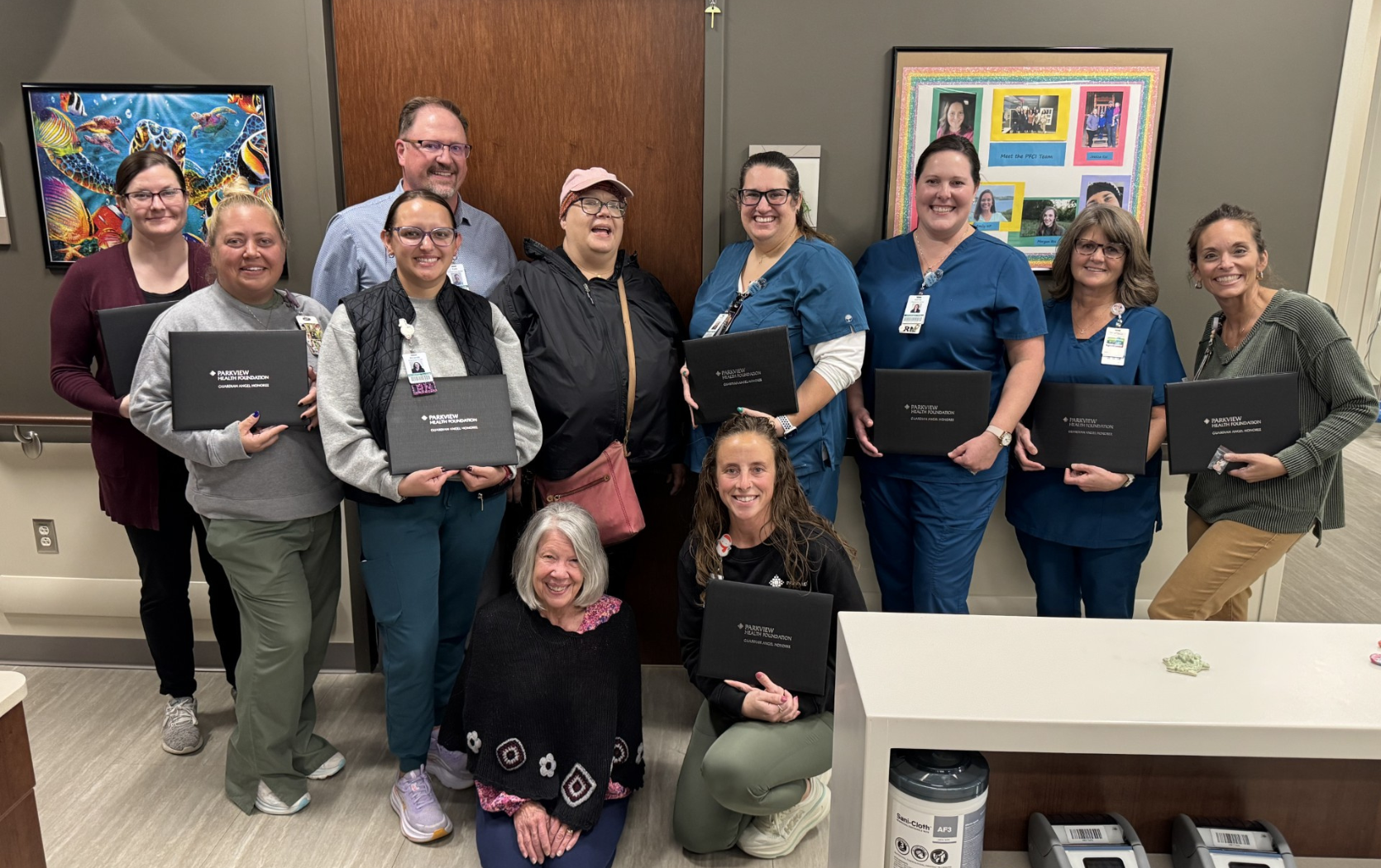
While cancers of the bone, tissue and joints are less common than some forms of the disease, treatment of each requires a highly specialized hand. Christopher Johnson, DO, Orthopedic Oncology Care Team, Parkview Packnett Family Cancer Institute, explains how sarcomas often present and why patients should seek out a sarcoma center for their diagnosis and care.
What is an orthopedic oncologist?
An orthopedic oncologist is an orthopedic surgeon who subspecializes in the treatment of bone and soft tissue tumors, including bone and soft tissue sarcomas, skeletal metastatic disease and noncancerous bone tumors. In addition, orthopedic oncologists often do complex joint reconstruction and limb salvage surgeries, which is using surgical techniques to preserve limbs and avoid amputation.
What specialized training does an orthopedic oncologist have?
We do medical school, followed by an orthopedic residency and then a fellowship in orthopedic oncology. I did my fellowship at the University of Washington in Seattle.
What conditions do orthopedic oncologists treat and how do they present?
We treat sarcomas, which are rare cancers of the connective tissue. They arise from bone, muscle, fat and nerves. There are over 70 different types of bone and soft tissue sarcomas, and they represent about 1% of cancers in adults. Soft tissue sarcomas present as an enlarged, painless mass, while bone sarcomas typically present with pain. Bottomline: If you are experiencing persistent, progressive pain in a joint or bone, or have a soft tissue mass that is enlarging or bigger than a golf ball, you should seek an evaluation and imaging.
On what areas of the body do sarcomas typically present?
Sarcomas can arise anywhere in the body, but the most common location for a soft tissue sarcoma is the thigh, and the most common place for a bone sarcoma is around the knee.
At what age do these tumors typically appear?
Sarcomas affect all ages. Osteosarcoma is the second most common cancer in children, while soft tissue sarcomas, depending on the subtype, are more prevalent in adults.
What would be some scenarios in which a patient is referred to an orthopedic oncologist?
Patients are referred to our team by their primary care provider, general surgeon or an orthopedic surgeon, for a lot of different reasons. We might see them for a suspected bone or soft tissue sarcoma, skeletal metastatic disease or a benign soft tissue tumor.
Often with these conditions, we see developing pain or perhaps a bone or different form of cancer that is weakening the bone and has the potential to trigger a pathological fracture. These are things that we can treat surgically.
What should patients prioritize when it comes to a diagnosis?
One of the most important things is to get the appropriate diagnostic workup and imaging early. Because these cancers are so rare, patients with sarcomas often have a delayed diagnosis due to improper initial evaluation. It’s common for these tumors to be benign, which also delays thorough investigation.
This is why it's so important for patients to seek evaluation and treatment at a sarcoma center, where there is a multidisciplinary team that treats sarcoma on regular basis. The Parkview Packnett Family Cancer Institute is a member of both the Sarcoma Alliance and the Sarcoma Treatment Center of America. We are one of only two sarcoma centers in the state.
What can a patient expect if they are referred to your team at the Parkview Packnett Family Cancer Institute?
They will receive a multidisciplinary visit led by myself. A typical evaluation includes an MRI of the tumor, often a corneal biopsy with radiology, a CT scan of the chest, and occasionally a whole body PET scan. All patients’ cases are reviewed by our multidisciplinary sarcoma tumor board.
What is the prognosis for soft tissue, bone and joint sarcomas?
Treatment varies by condition and subtype. Soft tissue sarcomas often require surgical limb salvage/surgical excision and radiation therapy, and in some cases chemotherapy. Bone sarcomas are typically treated with chemotherapy and surgical excision/limb salvage surgery.
Sarcoma can be curable, but it's critical to be treated by a sarcoma care team as quickly as possible. If you have concerns, speak with your primary care provider as soon as possible. You can get a second opinion from Parkview Packnett Family Cancer Institute at any stage along your cancer journey by calling 833-724-8326.



